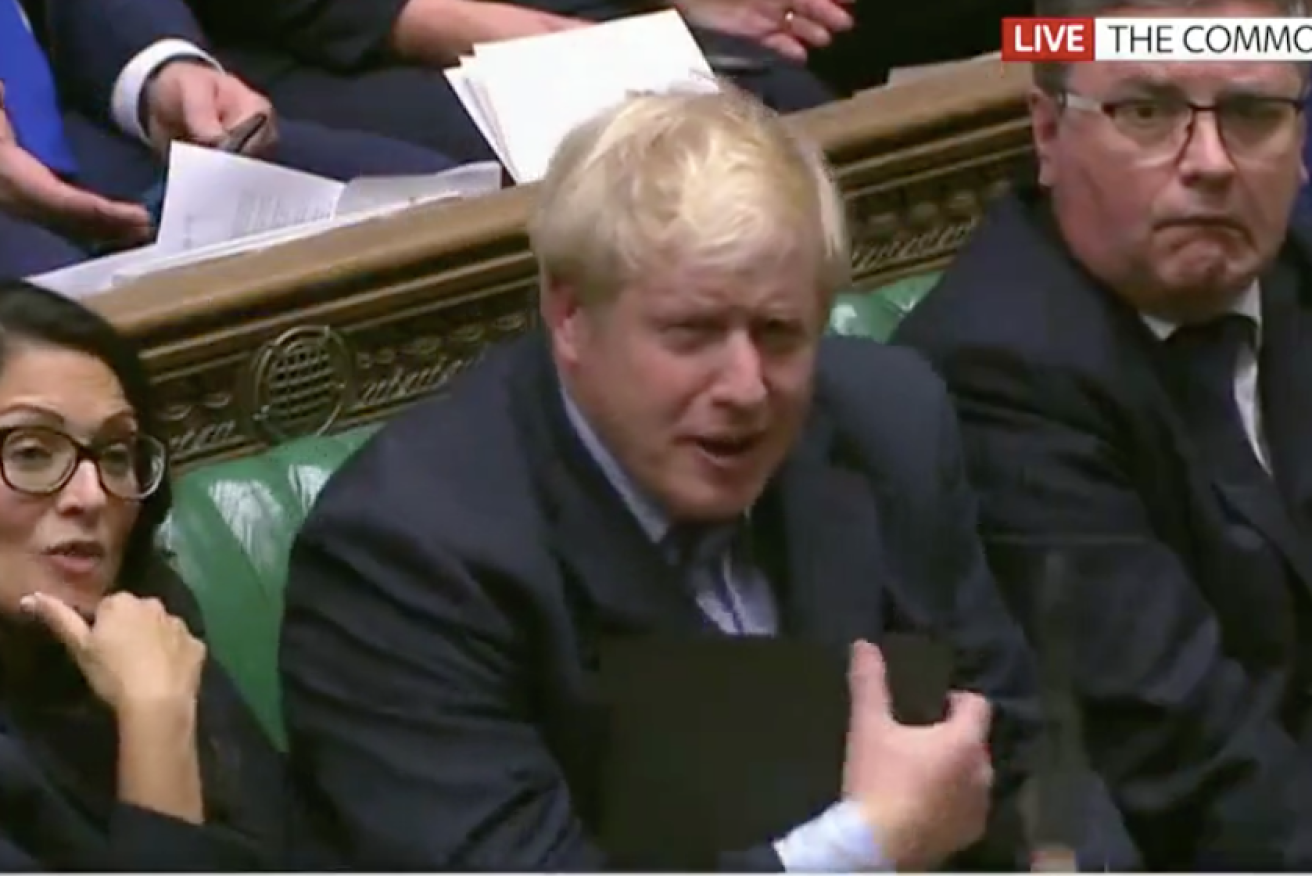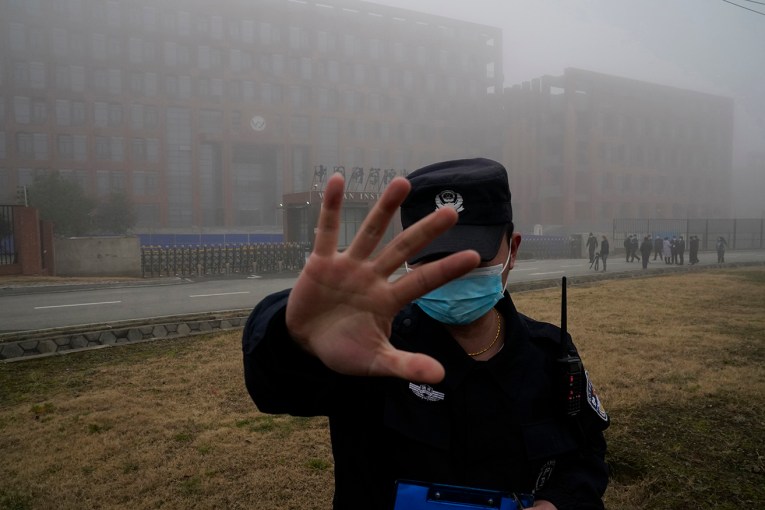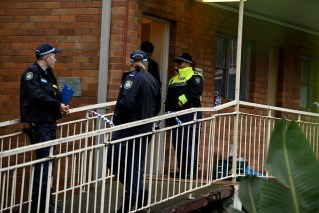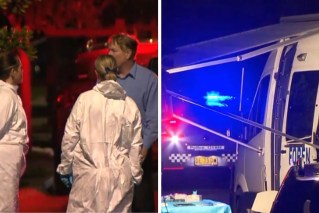British PM Boris Johnson warns of a pre-Christmas election amid Brexit chaos


Boris Johnson reacts after the timetable rejection. Photo: Sky News
Just last weekend, it looked as if Britain was finally on the verge of resolving its Brexit conundrum.
Now Prime Minister Boris Johnson, who once said he’d rather be “dead in a ditch” than ask for a Brexit extension, has been forced to request a delay to his October 31 deadline.
But on Thursday morning (Australian time) before EU leaders were due to consider the extension, Mr Johnson’s camp issued a warning: if the deadline is dragged out to the end of January, the British people will need to head back to the polling booth – by Christmas.
It may not be quite as drastic as a UK leader dying in a ditch. But the government might be hoping the threat of a hasty election may be more motivation for the opposition to agree to a faster timeline on debating the withdrawal bill.
Justice Secretary Robert Buckland told the BBC that “regrettably it does seem that a general election is the only way to sort this impasse out”.
The Labour party’s shadow justice secretary said a general election was the only way to sort out Brexit.
“As soon as no-deal is off the table, we want a general election to get the Tories out as soon as possible,” shadow justice secretary Richard Burgon told the BBC.
“I would like to see Boris Johnson out by Christmas.”
But that confidence from Mr Burgon may all be bravado for the cameras: in reality, polls show Labour looks like it is not in a favourable position to face an election.
Latest results from Britain Elects – on October 22 – shows the Conservatives enjoy a healthy lead of 35 per cent compared to Labour’s 25 per cent. 
Source: Britain Elects Poll Tracker
This all comes after dramatic scenes on Wednesday morning (Australian time) when the UK parliament agreed to in-principle support for a deal put to the EU, before MPs then rejected the three-day timetable to enact it.
The government argued a tight schedule was necessary to meet the end-of-the-month deadline, but MPs said they needed more time to scrutinise the particulars of the deal.
Mr Johnson met with Labour leader Jeremy Corbyn after the timeline rejection.
A Labour Party spokesperson later told BBC: “Jeremy Corbyn reiterated Labour’s offer to the prime minister to agree a reasonable timetable to debate, scrutinise and amend the Withdrawal Agreement Bill, and restated that Labour will support a general election when the threat of a no-deal crash-out is off the table.”
Boris Johnson's deal is even worse than Theresa May's.#PMQs pic.twitter.com/T1SNbdfgF4
— Jeremy Corbyn (@jeremycorbyn) October 23, 2019
European Council president Donald Tusk said on Twitter on Wednesday he was recommending that EU leaders back a delay, and he later reiterated that in a phone call to Mr Johnson.
European officials from 27 member states now say the most likely scenario would be that the bloc would grant a three-month delay.
If the extension to January 31 is granted it is likely to be a flexible agreement, allowing Britain to leave earlier if it can agree on the legislation and get it through parliament.
The @Europarl_EN's Brexit Steering Group met today & is of the opinion that a flextension, not going beyond the 31st Jan, is the only way forward. This is an important agreement & the European Parliament needs time to scrutinise in detail, especially concerning citizens rights.
— Guy Verhofstadt (@guyverhofstadt) October 23, 2019
But at least one country is likely to vote no. It’s believed France would demand a shorter extension of just days or weeks.
“The most likely outcome is an extension until January 31, as requested by London, with the possibility of Britain getting out earlier, providing it finishes its legal processes,” and EU diplomat involved in Brexit discussions told AAP.
“Basically as soon as Britain is ready itself, it can go.”
"The proposal was a disgrace and the way the PM sought to bully parliament into accepting it was shameful."
SNP leader @NicolaSturgeon questions what happens now that the latest Brexit bill appears to have stalled in UK parliament.
Find out more here: https://t.co/LCfLaTXBG7 pic.twitter.com/0nf0E08Qju
— Sky News (@SkyNews) October 23, 2019
A source at President Emmanuel Macron’s office told AAP that Paris was ready to grant an additional few days to facilitate the British parliament’s vote but opposed any extension beyond that.
On Wednesday (London time), French officials were sticking to that view despite Mr Tusk’s recommendation for a longer delay.
Any extension must be agreed unanimously among the EU 27.
They have already agreed twice to postpone Brexit from the original deadline of March 29 this year.
Both times, the French complained but eventually relented.
EU leaders were expected to meet in Brussels at 5.30pm local time on Wednesday to consider Mr Tusk’s recommendation and his proposal to seek their leaders’ consensus by “written procedure”.
An agreement is not likely to be reached on Wednesday, the official said.
-with AAP








